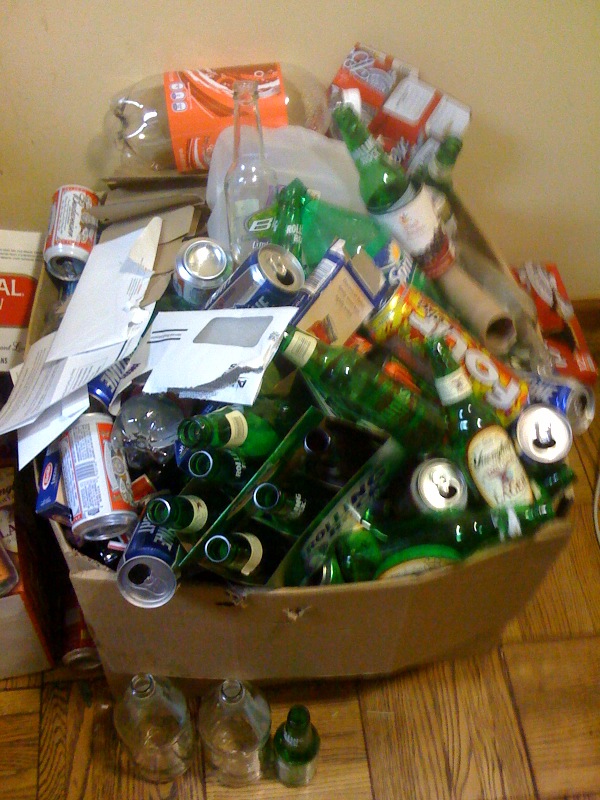LaBant Speaks: LaBant’s Get-Rich-Quick Scheme
February 2, 2011
My friends and I, like many over-privileged university students in this nation, drink a lot of beer. Occasionally, and particularly on the weekends, we drink liquor. Lastly, and I don’t understand the technicalities of the difference, we love the fusion of beer and whatever other ingredients make up “malt liquor.” Fact is, we have a lot of empty glass and plastic bottles on our hands, a lot of the time.
That is where the District of Columbia could come in. According to the Department of Public Works, DC pumps out “about 100,000 tons of trash and about 32,000 tons of recyclables from 103,000 single-family homes and small residential buildings each year.” While this doesn’t take into account commercial solid waste, that’s an impressive amount of recycling compared to trash; but what if it could be increased? What if people were given, say, a 10 cent incentive to hold on to their bottle rather than dispose of it at the nearest tax-funded trashcan at a street corner downtown?
I rarely doubt my own brilliance, but I’ll be the first to acknowledge that it strikes late at times. I first realized it would be a brilliant proposition when I was hanging out with esteemed AWOL founder and Oregonian reporter Bobby Allyn over Memorial Day weekend in Portland, Oregon. We were kicking it at one of the several amazing food cart parking lots in Portland and I observed a homeless dude going through trash and picking out bottles; he had a hippie aesthetic and was perhaps simply a steward of the environment, but regardless he was getting paid.
Oregon has had a bottle redemption policy in place since 1972, with an overall redemption rate of 84 percent. Many other states, including California, Connecticut, Delaware, Hawaii, Iowa, Maine, Massachusetts, Michigan, New York and Vermont feature some form of a “bottle bill.” I envy my peers from these states, and their individual economic opportunity, but I pose the question lacking an answer: Why can’t DC be a little more like them? My proposal of a “bottle bill” for the District is both highly rational and very feasible, with the sole exception that the District’s symbolic policy-makers cannot do their job without Congressional supervision.
The point is homelessness is universally a huge problem, and most of us witness it in our city on a daily basis. Positive social programming such as Street Sense, the D.C. newspaper that creates job opportunities for those experiencing homelessness while focusing on pertinent issues, works to solve idleness. A bottle tax could simultaneously provide a work ethic while sustainably keeping the streets clean. It’s completely wrong to suggest that it’s a homeless person’s duty to keep our streets clean, as well as to suggest that this proposal would specifically be creating jobs for them. My heart goes out to them and their struggle. The point is that this proposal could benefit both the city and the homeless population, or anyone else interested in cleaning up our metropolis for a small incentive.
Recycling is undoubtedly a responsible alternative for post-consumer matter. I was recently dismayed to learn that my hometown of Liverpool, PA had put off monthly cycles until April; the town next door now charges people to turn in their recycling to a program that was once free and volunteer-driven. If we don’t start to act immediately taking every rational procedure we can to combat climate change, even if only a baby-step such as recycling, then I see no reason not to give in to full-fledged hedonism. After all, if we concede that the planet is doomed, and we cease to care about our post-consumer waste (among other serious issues), why not do everything we possibly can to feel good, have fun, and not care? I hope you are all with me regarding the responsible approach. Until we unite on the basic premise that things are heading towards a sad ending, my friends and I will continue to store our bottles in a giant recycling box in the corner of someone’s apartment, aspiring to one day be paid to return them.


